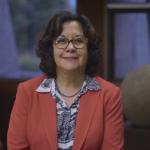
The UNESCO-UNEVOC International Centre: Who We Are | What We Do | Working With Us | Get in Touch
The UNEVOC Network: Learn About the Network | UNEVOC Network Directory
For Members: UNEVOC Centre Dashboard
Thematic Areas: Inclusion and Youth | Digital Transformation | Private Sector Engagement | SDGs and Greening TVET
Our Key Programmes & Projects: BILT: Bridging Innovation and Learning in TVET | Building TVET resilience | TVET Leadership Programme | WYSD: World Youth Skills Day
Past Activities: COVID-19 response | i-hubs project | TVET Global Forums | Virtual Conferences | YEM Knowledge Portal
Our Services & Resources: Publications | TVET Forum | TVET Country Profiles | TVETipedia Glossary | Innovative and Promising Practices | Toolkits for TVET Providers | Entrepreneurial Learning Guide
Events: Major TVET Events | UNEVOC Network News
The Bureau of Technical Education and Entrepreneurship (DETCE)was created by Executive Decree No. 34075-MEP in 2007.
DETCE is the technical body responsible for analyzing, studying, formulating, planning, advising, researching, evaluating and disseminating all aspects related to technical vocational education in the third cycle and diversified education, as well as promoting programs and projects to enhance their linkage to the labor markets. Therefore, the Directorate will be responsible for technical education as a formal process within the national education system in terms of equal opportunities and non-discriminatory access, will promote the formation of a specialized human resource, whose technical and professional training will offer the possibility of inserting into the work market easily and will transcend the cooperative education as another practice of association and cooperation in the individual, as well as stimulate student entrepreneurship through business initiatives.
To fulfill its functions, the Bureau of Technical Education and Entrepreneurship will have the following departments:
a) Department of Technical Education
b) Department of Business and Community Relations
c) Department of Business Management and Cooperative Education
.jpeg)
